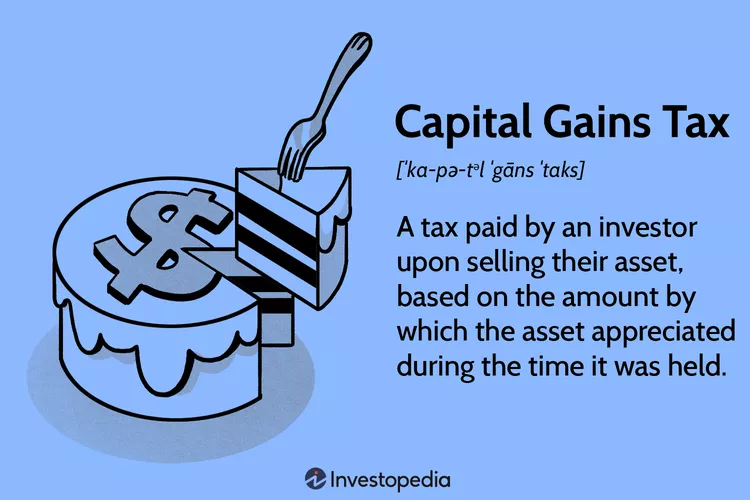What Are The Real Estates Taxes In Kenya?
Real estate is a preferred investment due to its consistent returns, which are not heavily
influenced by market fluctuations. To make it a successful venture, an investor must first
understand the current government tax laws. This article examines the various real estate taxation
systems in Kenya.
The majority of real estate investments in Kenya are residential and commercial. Both are
profitable businesses that provide investors with rental income while building equity.
How Is Real Estate Taxed in Kenya?
The tax rate paid by real estate investors varies depending on the type of tax. Stamp duty and
capital gains tax are two major types of taxes that apply to property transfers, as well as rental
income if the investor receives payment for the use of their property. Here’s how taxes work.
Also Read The Process of buying an apartment in kenya
1.Capital Gain Tax (CGT)
Capital Gains Tax is the tax levied on the gain realized from the transfer of property located in
Kenya. It is paid by the transferor of property, who can be an individual or a corporate entity, and
the rate is 15% of the net gains.
The net gain is defined as the excess of the net transfer value over the adjusted cost of the
transferred property. Net transfer value is the amount of property transferred minus incidental
costs. The adjusted cost includes property acquisition or construction costs, expenditures for
value enhancement or preservation, and incidental property acquisition costs.
Capital losses can be carried forward and used to offset future capital gains transactions. The
carrying forward of losses is only allowed for a maximum of ten years. Capital Gains Tax should
be paid on or before the property is transferred, and no later than the 20th day following the
transfer.

2.Stamp Duty Tax
Stamp Duty Tax is a type of taxation in Kenya payable by the property buyer when settling the
purchase to ensure the transfer is registered. The stamp duty rates in Kenya are between 2% and
4% of the property value. Expensive properties attract a higher stamp duty tax.
The tax should be paid within 30 days after the transfer is complete. Failure to pay stamp duty
tax will result in the transaction becoming invalid, the agreement between the parties becoming
null and void, and the transaction becoming invalid in a court of law.
Failure to pay the duty and or assessed amounts leads to a fine that is assessed at five percent
(5%) of the principal assessed stamp duty for every quarter from the date of the Instrument.

3.Rental Income Tax
A real estate investor who receives payments from individuals who occupy or use their
immovable property must pay rental income tax. The property may be residential or commercial.
Rent income ranging from Ksh 288,000 to Ksh15 million per year is subject to taxation. If an
investor receives rental income less than Ksh288,000 or more than Ksh15 million per year, they
must declare it when filing their monthly income tax returns.
The residential rental income tax rate is 7% of gross rent received per month and is due when
landlords collect rent from tenants. Landlords earning more than Ksh15 million monthly fall into the corporate rental income bracket. They must pay a 30% corporate tax.
Rental income returns must be filed on a monthly basis, and taxes must be paid by the 20th of the
following month. Rental income is also subject to a 10% withholding tax, which applies to both commercial and residential rentals.

3. Land Rate In Kenya
In Kenya, land rate is a required and recurring payment made by property owners to the county
government. This payment is critical for supporting and maintaining essential public services
that benefit the community as a whole. These services include garbage collection, street lighting,
and security measures to ensure residents’ safety and cleanliness.
The land rate fee is determined by a variety of factors, including the property’s size and land use
designation. It is important to note that this fee is not influenced by the property’s market value, but rather serves to evenly distribute the cost of public services among property owners.
Understanding the concept of land rate in Kenya is critical for property owners because it
directly affects their financial obligations and liabilities.
Property owners who are aware of the key information and regulations surrounding land rates can better plan their finances and contribute to the development and maintenance of a thriving community.
4. Land Rent In Kenya
Land rent in Kenya is a recurring fee imposed by the ministry of land on landowners. It is
calculated based on the market value of the land and is an essential aspect of the country’s land
management system. The primary purpose of land rent is to generate revenue for the county
government, which in turn supports local infrastructure development and public services.
Land rent fees are determined through a careful evaluation of various factors, including the
location, size, and potential use of the land. The county government takes into account the prevailing market rates and ensures that the fees are reasonable and fair. This ensures that landowners contribute their fair share towards the development and maintenance of public amenities and services.
The calculation of land rent entails a thorough evaluation of the land’s value. The county
government considers factors such as accessibility, proximity to urban areas, utility availability,
and any existing infrastructure on the property. By accurately assessing market value, land rent
fees reflect the true value of the land and promote equitable resource distribution.
Kenya taxes real estate with Capital Gains Tax (CGT) on property transfers (15%), Stamp Duty
Tax (2%-4% of property value), and Rental Income Tax (7% for residential, 30% for
commercial). Land Rate supports public services, whereas Land Rent, which is based on market
value, benefits local infrastructure.
